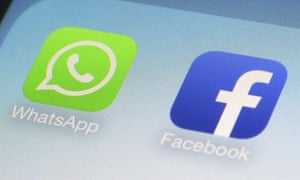
This article is about how Facebook had been fined by the European commission for providing misleading information about data-sharing between Facebook and WhatsApp. In addition, Facebook’s main engine is its advertising business, which generates $7.86bn each quarter worldwide, with $1.9bn specifically from Europeans. The reason Facebook is so good at attracting advertising, soaking up 16% of all global digital ad revenue (Google takes 33%) – and is in the process strangling traditional media – is the sheer amount of data it holds and employs to better target ads at users. However, this article also states that Facebook is not alone in this; it is Google’s primary business model too. But it is Facebook that has caused unease in Europe, where it is perceived to be trampling over privacy laws. But this cannot be changed to some extent as these two companies are extremely large to be controlled by someone else.
- Facebook’s €110m fine by the European commission for providing misleading information about data-sharing between Facebook and WhatsApp is just one of a growing number of regulatory battles the US social media giant is fighting.
- Facebook counts a quarter of the world’s population – 1.94bn accounts – as monthly active users, with 354m in Europe. WhatsApp has 1.2 billion users, while Facebook-owned Instagram has 700m monthly active accounts.
- Already this month the company has been fined in France (€150,0000) and Italy (€3m) over its use of personal data, although these financial penalties are a drop in the ocean for Facebook.
In my opinion, I believe that recently, Facebook have been let off way too easily. For example, Facebook has played a huge factor in fake news and taxes and I believe that if the government and others were to take actions,it would make Facebook think twice and therefore, they would be more cautious. An example is that if Facebook were trying to encourage fake news or weren't doing something about it, everyone would believe that it is Facebook's fault as they haven't taken any action for it. So, if the information commissioner was to report and fine Facebook then it would make them more aware and therefore would like to take more action.
No comments:
Post a Comment